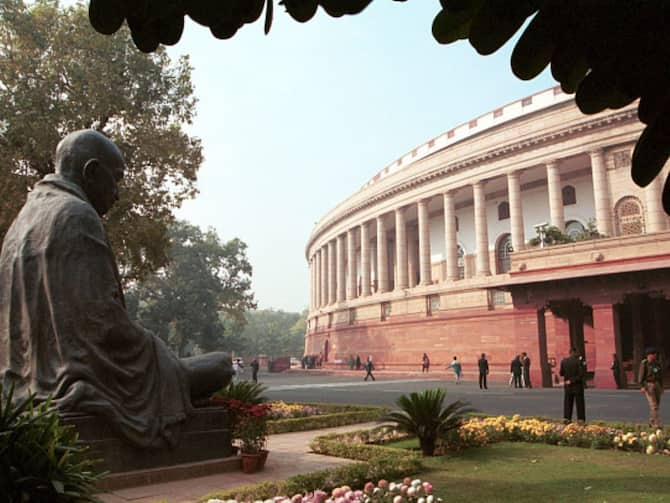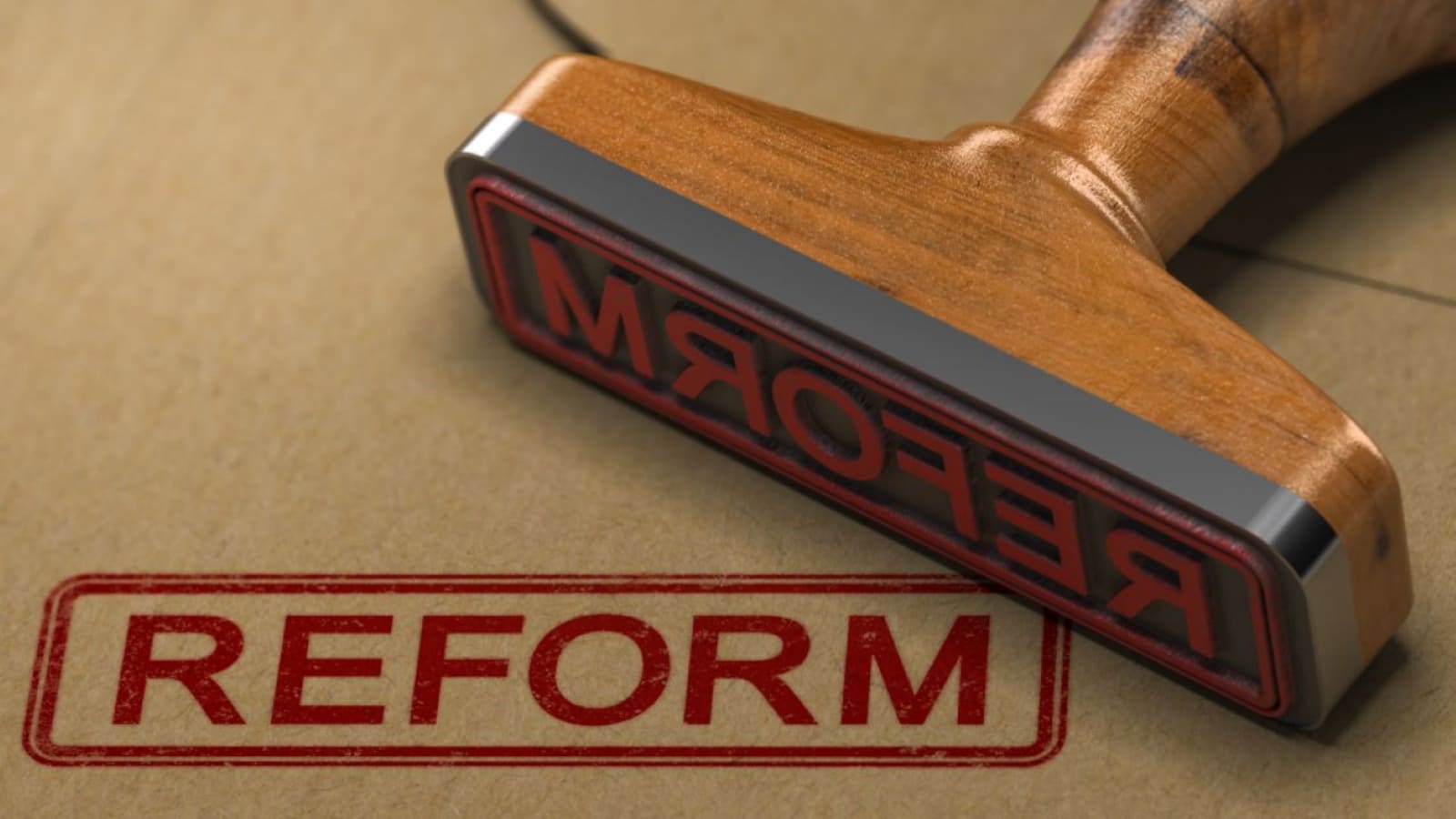Competition Bill | MPs panel’s suggestions will make the law more robust-

The MPs’ panel’s suggestions for the Competition Bill will strengthen the law. The Parliamentary Standing Committee recommended significant changes to the Competition Act that would make it more effective at regulating mergers and promoting fair play.
Since the passage of the Competition Act in 2002, India’s market regulator, the Competition Commission of India (CCI), has been in operation. Due to the recent economic expansion and changes in market behaviour, the legal system has required review since then. With the formation of the Competition Law Review Committee in 2018, the process of future-proofing the law began (CLRC).
Many of the CLRC’s recommendations were incorporated into the Competition Amendment Bill of 2022, which would have resulted in a competition law 2.0 and allowed the CCI to address modern issues.
The Amendment Bill was referred to the Parliamentary Standing Committee on Finance due to the significant changes it made to existing law and the far-reaching consequences it would have. On December 13, 2022, the Lok Sabha received a report resulting from the Committee’s thorough investigation and consultation process, which was directed by Jayant Sinha.
Considering the size of the task and the time constraints, the Standing Committee Report is thorough and timely. The Committee produced a number of useful recommendations to improve the Amendment Bill by sorting through a number of complex issues and taking into account the views of various stakeholders.
The Report should be commended for remaining steadfastly committed to striking the right balance between necessary regulation and business-friendly conditions. Processes have been strengthened, with gaps and flaws filled.
The reinstatement of the intellectual property (IP) defence in abuse of dominance cases, allowing dominant IP owners to take legal action to protect their rights; the specific introduction of the “effects test” for abuse of dominance cases, requiring that dominant enterprises’ conduct be evaluated for its actual or potential adverse effect on competitiveness; and the specific reinstatement of the IP defence in abuse of dominance cases, allowing dominant IP owners to take legal action to protect their rights. If I had to pick three notable examples of significant changes to the Act,
It is encouraging to see the Standing Committee making up for the first two significant changes that the CLRC considered but left out of the Amendment Bill.
Any law must have certain “nuts and bolts” in place in order to be implemented properly. Once again, the Standing Committee does an excellent job of scrutinising implementation details and addressing some of the Amendment Bill’s shortcomings.
The removal of the shortened merger review timelines, which required the CCI to complete its review within 20 days of phase 1 and 150 days overall, is one example of this “ironing out” process.
The ability to interview and depose attorneys for the companies under investigation was removed, which, if accepted, would have violated every accepted rule of attorney-client privilege and confidentiality.
Shorter clearance timelines may have appeared appealing at first, but they would inevitably (and ironically) increase the timing burden and uncertainty for the CCI and filing parties throughout the approval process. Both of these criticisms of the Amendment Bill are successfully addressed by the Standing Committee’s recommendations.
The significant changes made to the commitments and settlements mechanism may have had the greatest impact on the potential for improving the law.
The Committee’s recommendations make the settlement and commitment procedure more user-friendly by (a) broadening its scope to include cartels; (b) removing the requirement that applicants admit guilt prior to applying for a settlement or commitment; (c) limiting the rights of “third parties” during commitment and settlement discussions in order to maintain the confidentiality and sanctity of the process; and (d) allowing applicants to withdraw or move forward with their applications. These changes have made the entire system much more readable and transparent.

Competition Bill: Unresolved issues
In order to fully assess the Standing Committee’s accomplishments, the following opportunities must be highlighted: Unfortunately, neither the “deal value thresholds” (DVT) nor how a company’s actual business operations will be assessed to determine whether a combination needs to be notified are clearly explained.
Because the Supreme Court is still debating the issue, the Committee decided against recommending that the CCI add at least one additional judicial member.
Third, if the Director General of the CCI’s investigative arm is not kept separate from the Commission, the opportunity to avoid such litigation will be lost.
These ideas will almost certainly spark an animated debate on the House floor before being incorporated into a new Amendment Bill.
On Tuesday, a parliamentary committee amended a bill that would change the law governing competition, adding cartels to the list of settlements as a “pragmatic recourse” and making other changes.
According to the report submitted to the Lok Sabha by the Parliamentary Standing Committee on Finance, the current timeline for a prima facie opinion and passing an order approving combinations should be maintained.
In the Competition (Amendment) Bill 2022, which was introduced in Parliament on August 5, the corporate affairs ministry proposed reducing the Competition Commission of India’s (CCI) 30-day window for formulating a prima facie opinion on a case to 20 days.
Additionally, it has recommended lowering the approval period for combinations from 210 to 150 days.
According to the panel, the CCI and stakeholders expressed concern about the authority being placed in a difficult and taxing situation.
The committee noted in its report that shortening the deadline could be difficult for a commission with a staffing shortage. A parliamentary committee released a number of recommendations for changes to the competition law on Tuesday, including the inclusion of cartels as a “pragmatic recourse” in the list of settlements. On Thursday, a House committee will meet with stakeholders to discuss a bill that would change the makeup of the selection committee in charge of hiring for IEBC positions.
Furthermore, the “current prima facie opinion timeline and that of passing the order for approval of combinations should remain unchanged,” according to the Parliamentary Standing Committee on Finance’s report to the Lok Sabha.
The corporate affairs ministry has proposed shortening the 30-day prima facie opinion formation period for CCI to 20 days under the Competition (Amendment) Bill, 2022, which was introduced in Parliament on August 5.
In addition, it has proposed shortening the approval process for combinations from 210 to 150 days.

According to the committee, the Competition Commission of India (CCI) and other stakeholders are concerned that this will put the authority in a difficult and burdensome position.
The committee noted in its report that shortening the deadline could be difficult for a commission with a staffing shortage.
The panel recommended, among other things, that CCI consider including cartels and other parties in settlements as a “pragmatic recourse to the entire process.”
Only after receiving the investigation report and before CCI issues the final order, as required by the regulations, may an application for settlement be submitted.
The committee, chaired by BJP member Jayant Sinha, was tasked with reviewing the bill after it was introduced. The Competition Act will be amended for the first time since it went into effect in 2009.
The law was amended in 2007 and 2009 after the Act was first introduced in 2002. The law’s antitrust provisions went into effect in May 2009, and CCI began reviewing mergers and acquisitions two years later, in May 2011. According to information received on Thursday, the Parliamentary Standing Committee on Finance approved the Competition (Amendment) Bill, 2022, which is expected to be introduced in Parliament soon.
The Standing Committee, led by Jayant Sinha, reportedly approved the Rs 2,000 crore cutoff point for mergers and acquisitions, above which the transactions require approval from the Competition Commission of India. The finer points of the recommendations are unclear.
Another suggestion is that the Competition Commission of India have at least one judge. During its meeting on Thursday, staff from the Department of Legal Affairs (Ministry of Law and Justice) briefed the panel on the Bill’s provisions.
The Competition (Amendment) Bill is being closely scrutinised because of its significant impact on high-value mergers and acquisitions, particularly in the technology and digital sectors.
One of the many provisions in the Bill would require the CCI to be notified of high-value mergers and acquisitions with a significant Indian presence and deal values exceeding Rs 2,000 crore.
Another amendment would reduce the current approval window for combinations from 210 to 150 days. Furthermore, the Bill seeks to broaden the definition of such agreements by including a party that facilitates an anti-competitive horizontal agreement.

The Bill is most likely to be discussed during Parliament’s budget session.
The public had until Monday to weigh in on the bill.
If passed, the bill will allow the Public Service Commission and the Political Parties Liaison Committee, both of which were established in accordance with Section 38 of the Political Parties Act, No. 11 of 2011, to each propose one candidate for the panel.
According to the Independent Electoral and Boundaries Commission Act of 2011, the Parliamentary Service Commission, presided over by the Speaker of the National Assembly, will nominate two men and two women for the seven-member selection panel.
The Act requires the IEBC selection panel to include two nominees from the Inter-Religious Council of Kenya and one nominee from the Law Society of Kenya.
The bill proposes to replace two of the four slots currently held by the Parliamentary Service Commission with one each for the Public Service Commission and the Political Parties Liaison Committee.
The terms of the IEBC’s chair, Wafula Chebukati, and commissioners Boya Molu and Abdi Guliye expire in January.
Kimani Ichung’wa, the head of the majority, is the sponsor of the Independent Electoral and Boundaries Commission (Amendment) Bill (National Assembly Bill No. 49 of 2022).
The bill was released on November 2 and was first read in the House on November 17. The Departmental Committee on Justice and Legal Affairs was then tasked with reviewing it and reporting back to the House in accordance with Standing Order 127.




